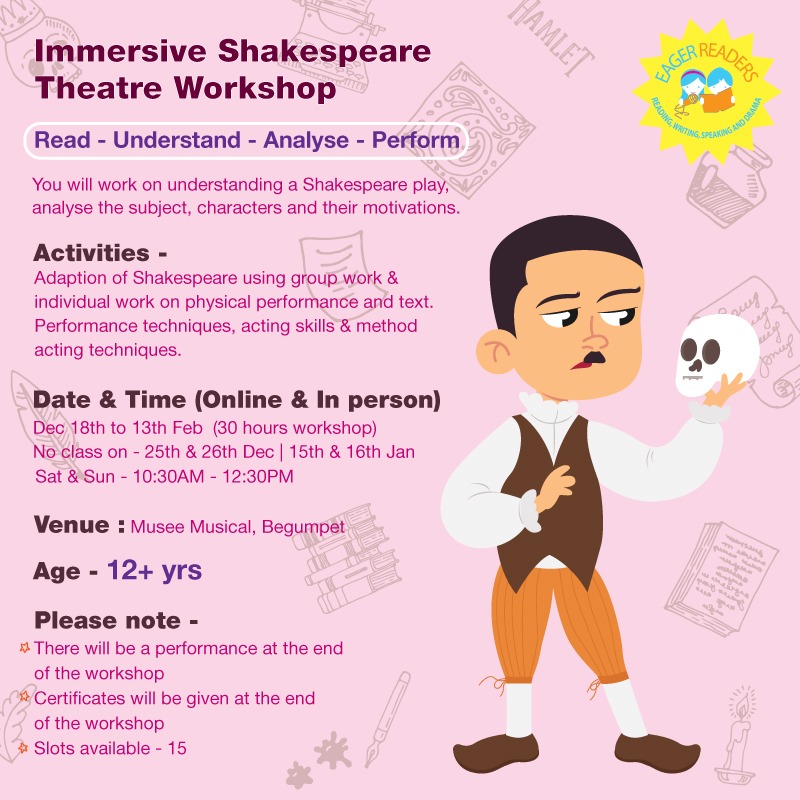Why everyone should do drama?
In my drama teaching experience, there are those learners who clearly love drama and then there were those who were never inclined towards it. I endorse drama as a necessary pill for everyone.According to educators Alan Duff and Alan Maley drama is useful in a number of ways.
Using my teaching experience every use is accompanied by a vignette that practically justifies the use.
- It integrates language skills in a natural way. Careful listening is a key feature in drama Spontaneous verbal expression is integral to most of the activities and many of them require reading and writing both as part of input and output.
Vignette
When we used the mime technique to elicit present continuous tense, learners used the language naturally and had a better grasp of the form and use as opposed to isolating the grammar point and teaching it out of context.
- It integrates verbal and non-verbal aspects of communication, thus bringing together both mind and body, restoring the balance between physical and intellectual aspects of learning.
Vignette
When we use dramatisation in poetry, the learner got a better grasp of the intended meaning underlined in the poem and he was able to talk about the motivation of the poet.
- It draws upon both cognitive and affective domains this restoring the importance of feeling as well as thinking
Vignette
When talking about “double consciousness” to understand how the character was feeling, we asked the learners to relate this to a feeling you felt when you felt like an outsider and show us a role play. The learners were able to connect to the characters feeling when they reflected it to their own setting. They had to connect the feeling cognitively and the affective filters of begin able to relate to the character helped the outcome.
- By full contextualising the language, it brings the classroom interaction to life through an intense focus on meaning
Vignette
Using a dramatised interpretation of a proverb that had several hidden meanings enabled the learners in groups to have a meaningful interaction entirely focussed on the target language and they immersed themselves in the act of doing it.
- The emphasis on whole-person learning and multi-sensory inputs helps learners to capitalise on their strengths and to extend their range. In doing so, it offers unequaled opportunities for catering to learner differences.
Vignette
No learner is equally capable, in our improvisation workshop we encouraged learners to tap into their potential so if a learner was good at voices hr could provide background noise to the scene and those who are good speakers could lead the dialogues. Allowing a learner to explore their own potential was possible due to the drama.
- It fosters self-awareness, self-esteem, and confidence, and through this, motivation is developed.
Vignette
Putting yourself out there in front of an audience, boosted the confidence of a 7-year-old so much that she emerged into an eloquent speaker and regularly participates in drama and elocution activities in her school.
- There is a transfer of responsibility for learning from teacher to learners which is where it belongs.
Vignette
By shifting my role from a teacher to an observer, facilitator, the group of learners successfully created a skit and presented it in class. The learners felt a sense of ownership and responsibility towards the task and the outcome was achieved successfully.
- It encourages an open, exploratory style of learning where creativity and imagination are given scope to develop. This, in turn, promotes risk-taking which is an important life skill
Vignette
When learners decided to depict different shades of the same character with three different actors, my initial reaction was that this is not going to go down well, but their creativity proved me wrong. They kept a constant accessory and a twitching habit that was characteristic of the character and their risk turned out profitable.
- It has a positive effect on classroom dynamics and atmosphere, thus facilitating the formation of a bonded group, which learns together
Vignette
I often get requests for one-on-one sessions. Personally, I am not in favor of those because what learners can learn from peer-to-peer interaction is more valuable than teacher input. During our play Persephone, the group of actors became a cohesive unit that improvised and helped co-actors to thrive and perform.
At Eager Readers, we have embarked on a quest to explore Shakespeare with our young learners and teenagers. We have planned an immersive 30 hours Shakespeare drama workshop for learners aged 12 plus.
Why do Shakespeare?
The playwright Ben Johnson said “He was not of an age, but for all time” Themes that do not stand the test of time but will stay relevant as long as the human race survives are what Shakespeare’s plays are made of. Themes of love, revenge, hate, ambition, racism, exposure to literary devices such as persuasive language, descriptive language are available. The beauty of Shakespeare’s language will help learners dig deeper into the meanings and explore the hidden meanings a key skill in language learning.




